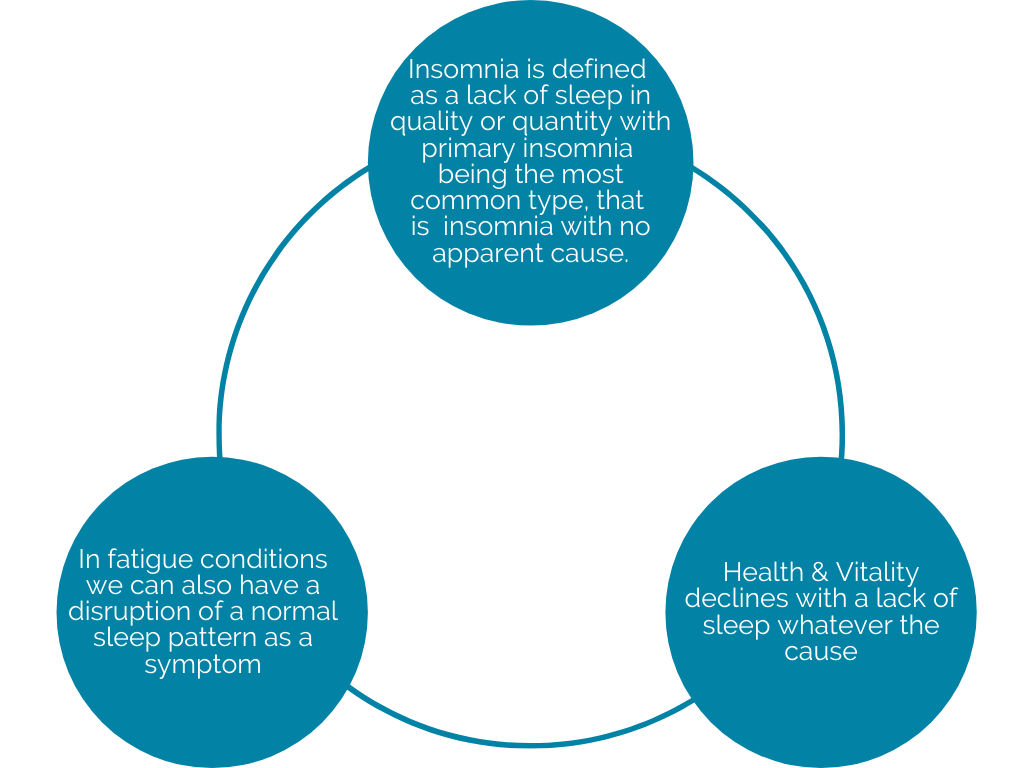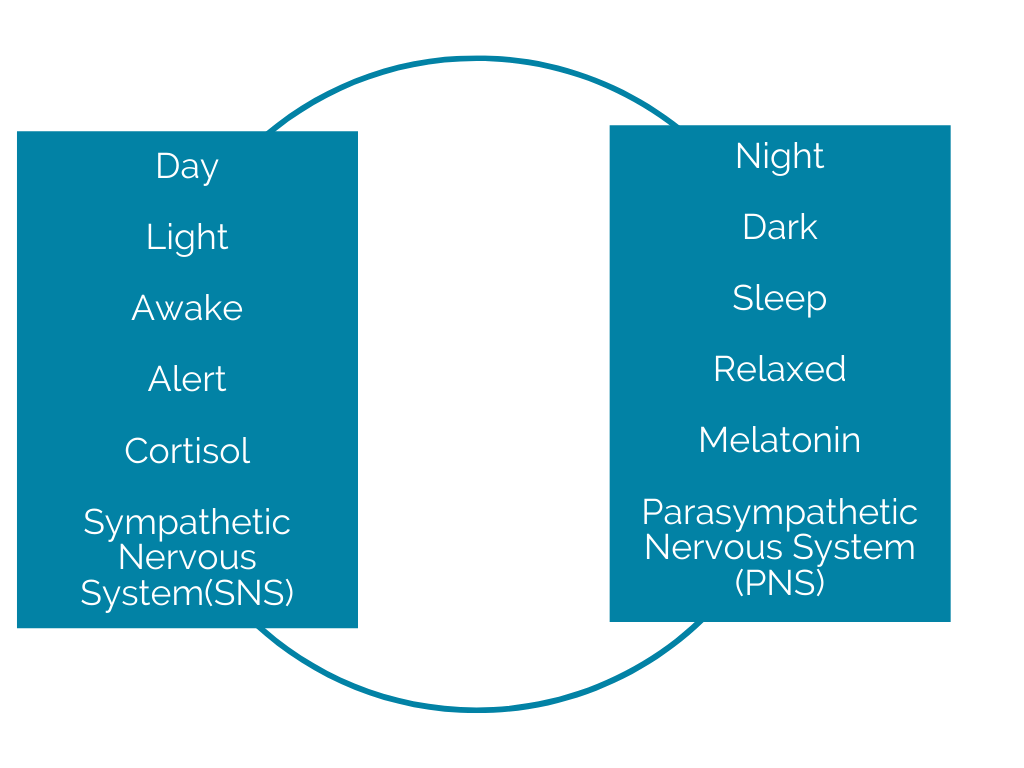understanding sleep
We all have a natural body rhythm and body clock which helps us to regulate our wake/sleep cycle. Sometimes this can get knocked out of balance by other things occurring in our life. This factsheet explains a little more about our Circadian Rhythm and how we can help to rebalance our sleep and begin to feel more energised.
We all want to gain a better understanding of sleep in relation to assisting our self-care management of fatigue and build confidence to try new techniques to help us achieve a better night’s sleep.


the circadian rhythm
We have all heard of The Circadian Rhythm, but what is it and how does it affect our sleep pattern?
The Circadian Rhythm is our natural, internal body clock that regulates the sleep-wake cycle and repeats every 24 hours responding to light and dark, night and day.
Our brain receives signals based on our environment, then activates certain hormones, adjusts body temperature, and regulates metabolism to either keep you awake and alert or to make you feel tired and sleepy.
Melatonin is the hormone your body releases more of at night and makes you feel sleepy. Cortisol is the hormone your body releases more of in the morning to make you feel more alert.
We can experience disruptions to our circadian rhythm due to a variety of factors or sleep disorders. This of course can then impact on energy and fatigue. Maintaining healthy habits can help your body to keep its natural rhythm. Your rhythm may adjust based on your work hours, physical activity, habits, lifestyle choices and age. Our sleep pattern may well alter several times throughout our lifetime.
As Adults we will expect to have a consistent circadian rhythm if we practice healthy habits. We would expect to get sleepy well before midnight, as melatonin is released into the body.
How our rhythm can be disrupted
Sometimes it is not possible to follow your natural circadian rhythm, as our lifestyle needs, and our internal clock do not synchronise.
This could be because of:
• Work shift patterns,
• Long haul travel
• Medication,
• Stress
• Mental health,
• Head injury
• Sight loss.
• Lack of sleep schedule
• Eating and drinking patterns
• Screen time
• Lack of comfortable sleeping space
Tips to reset your circadian rhythm
✓ Introduce a daily routine
✓ Spend time outdoors during daylight hours
✓ Move your body each day
✓ Check your sleeping space is comfortable
✓ Avoid alcohol, caffeine in the evenings
✓ Power down your screens well before bedtime
✓ Reading a book, listen to calming music, or meditate
✓ Avoid napping late in the afternoon or evening
